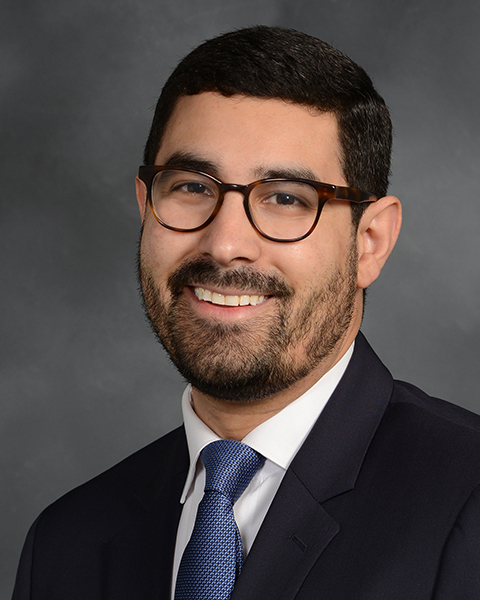Immunotherapy
EDU 47 - Intersection of Immuno-Molecular-Genetic Profiling and Implications for Immunotherapy (IT) and Immunotherapy-Radiotherapy (IT-RT) Combinations
AMA PRA Category 1 Credits 1.25
CAMPEP Credits: 1.25
MDCB Credits: 1.25
-

Ariel Marciscano, MD
Massachusetts General Hospital
Boston, Massachusetts, United States
Moderator(s)
Although immunotherapy has revolutionized the treatment of cancer, the translation of immunotherapy-radiotherapy (IT-RT) combinations into the clinic has proven challenging. While radiotherapy can be immuno-stimulatory, it also is known to have several immuno-suppressive properties that may be responsible for difficulty in clinical translation. To this end, the past decade has revealed mounting evidence that various germline mutations, somatic alterations and other tumor-intrinsic molecular features influence the immune contexture of the tumor microenvironment (TME) and thus the potential to modulate the interaction between immunotherapy and radiotherapy. In parallel, molecular-genetic tumor profiling and next-generation sequencing (NGS) are now standard-of-care across a spectrum of malignancies and are increasingly used for prognostication, refinement of treatment selection and monitoring of treatment response.
The goal of this session will be to review emerging molecular profiles of tumors that influence the interaction of radiotherapy with immunotherapy. In the era of personalized medicine, radiation oncologists should be familiar with immuno-molecular-genomic tumor profiling and how these assays and biomarkers may help identify subgroups of patients that are most likely to benefit from IT-RT combination strategies and help design future trials that enrich for potential responders.
Presentations:
-
2:30 PM - 2:32 PM ETIntroductions
Speaker: Ariel Marciscano, MD – Massachusetts General Hospital
-
2:32 PM - 2:44 PM ETThe Intersection of Tumor-Intrinsic Genomics and Anti-Tumor Immunity: Preclinical and Clinical Insights
Speaker: Jason Luke, MD – UPMC Hillman Cancer Center
-
2:44 PM - 2:56 PM ETLeveraging Molecular-Genetic-Epigenetic Characterization to Refine Patient and Treatment Selection for IT-RT Combinations
Speaker: Sean Pitroda, MD – University of Chicago
-
2:56 PM - 3:08 PM ETBiologically-Guided Approaches to Address Intrinsic Resistance to IT-RT Combinations
Speaker: Yvonne Mowery, MD, PhD, BS – University of Pittsburgh, UPMC Hillman Cancer Center
-
3:08 PM - 3:20 PM ETIntegrating Radiation Oncology into an Era of Precision Medicine: Rationale Approaches for Future Personalized IT-RT Combinations
Speaker: Nadeem Riaz, MD, MS – Memorial Sloan Kettering Cancer Center
-
3:20 PM - 3:35 PM ETQuestions and Answers
Speaker: Ariel Marciscano, MD – Massachusetts General Hospital
